Play game
Arctic Eggs (Jam Version)'s itch.io pageResults
| Criteria | Rank | Score* | Raw Score |
| Originality | #2 | 4.719 | 4.719 |
| Presentation (graphics, audio) | #9 | 4.641 | 4.641 |
| Fun | #63 | 3.688 | 3.688 |
| Theme | #233 | 3.125 | 3.125 |
Ranked from 64 ratings. Score is adjusted from raw score by the median number of ratings per game in the jam.
How does your game represent Mode?
Your character only has two modes, cook and walk.
Leave a comment
Log in with itch.io to leave a comment.



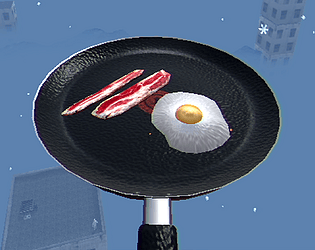

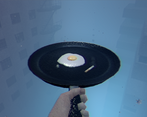

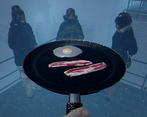
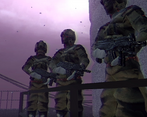
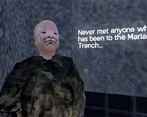
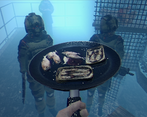
Comments
Awwww, my best food!
I really enjoyed the game play and visuals a lot. Sadly didn't get to see the ending because i got stuck on a window while going up stairs.
Incredible visuals, fun and engaging gameplay, chill vibes, this game has it all 10/10. Also very motivational and thought provoking.
Digging the atmosphere
If we can say that the WarioWare, Inc. franchise reproduces the hectic and fragmented lifestyle of contemporary hyperconsumption, Arctic Eggs is particularly concerned with inducing the zen state you need to set aside your commitments and procrastinate peacefully until late afternoon — good.
First and foremost, it is important to note that Arctic Eggs continues that specific game design philosophy popularized in recent decades by Bennett Foddy's games such as QWOP (2010), GIRP (2011), and Getting Over It With Bennett Foddy (2017). In summary, the basic premise of this design philosophy lies in the playful intuition that any mundane everyday action — running (QWOP), handling a tool (Getting Over), or, in our case, frying eggs — can be translated into complex gameplay mechanics. In a world where we are all toxically conditioned by the accelerated rhythm of alienated consumption, and patience needs to be reclaimed as not just thinkable but practicable, this approach promotes self-denial over selfishness and measured precision over the brute force of the addict. Not surprisingly, the only explicit timer in the gameplay is the cigarette, which, along with the coffee break, stands among the universal symbols of procrastination in the workplace.
In many ways, Arctic Eggs seems to represent a successful synthesis of our typically postmodern spirit, symbolized precisely by the combination of the egg — that is, aborted life — and the cigarette — that is, premature death.
In diegetic terms, this is why the real origin of the dystopian social structure represented in the game is never fully revealed but only suggested. Even when the game seems to respond with something concrete to expose its "foundations," it does so always in a "post-ironic" manner, a symptom of our cynicism. Otherwise, the narrative could not admit any mistake from the cook and, for the sake of internal coherence, would need to place him back within the logic of late capitalism every time a slip occurred. In this sense, it seems to me that by never punishing him at any moment, the game validates the autonomy of the virtual game space, the "magic circle" (Eric Zimmerman and Katie Salen), as a space of abundance and experimentation.
Secondly, and more importantly, Arctic Eggs can be understood as a "strong" science fiction game, in a sense that I would like to elaborate on here. If the video game is — as has often been pointed out — a postmodern medium that absorbs and mixes, indiscriminately, the repertoire of its sibling media — literature, music, cinema — into a renewed and ever-changing form of reality representation, our initial task will always be to insist on the fundamental distinction that separates the game itself, in its own "gameness," from the audiovisual and literary aspects also present in the act of playing. In our predominantly logocentric philosophical tradition, the game has often been confused with the narrative aspects reproduced by the game, in the game; more rare has been the confusion between the game and the soundtrack. For the same reason, it has become acceptable to argue that a cultural product derived from science fiction literature is science fiction simply because it represents, to some extent, spaceships or zap guns — that is, even if it fails to consider more carefully any social implications of these inventions, something considered essential in true science fiction, or at least in good science fiction.
Not being a problem in itself, this situation suggests the high degree of diffusion of sci-fi imagery in the public consciousness. In Arctic Eggs, for example, many elements that make up the setting seem directly drawn from some of Philip K. Dick's most famous dystopian stories, such as "Do Androids Dream of Electric Sheep?" (1968), as well as the technological imagery created by the cyberpunks in the 1980s (William Gibson, Bruce Sterling, Lewis Shiner, etc.). In this sense, and according to common sense, Arctic Eggs is certainly a science fiction game — however, and here lies the main point of the second argument, Arctic Eggs is a "strong" sci-fi game, as opposed to "kitsch" sci-fi.
The greatest quality of Arctic Eggs, basically, results from the fact that this game deeply mobilizes the poetic power of science fiction as discourse, carrying out from start to finish that process of "cognitive estrangement" that the theorist Darko Suvin originally associated with the "ontolytic effect" of sci-fi. In "Metamorphoses of Science Fiction: On the Poetics and History of a Literary Genre" (1979), Suvin characterized this act of "dissolution" precisely as the figurative deconstruction of consensually accepted reality, forcing the admission of other cognitively equivalent versions in its place. Thus, through its specific literary devices, science fiction, as a sui generis literary form, would be able to perform the aesthetic procedure of defamiliarization/familiarization of the known/unknown in the empirical world of the reader.
This "cognitive disruption" is possible because the creator of the fictional world, in an initial moment of validation, can typically situate his creation within a "realistic" paradigm — thus organizing its literary structure based on scientific observations and theorizations familiar to the reader's horizon as possible structures, as much as those of his current world. Only to later destabilize this perception with the insertion of a cognitively deviant referent, often a technological invention.
However, as the researcher Seo-Young Chu pointed out in her book "Do Metaphors Dream of Literal Sleep?" (2010), "every science fiction world is a metaphysical concept literalized as an ontological fact within a narrative universe." Expanding Suvin's perspective, Chu argued that science fiction reveals its cognitive value as it manages to represent certain "cognitively strange" referents that would otherwise be unrepresentable under a "realistic" representational model. In this sense, sci-fi discourse is understood as the most suitable representational mode for dealing with the impalpable aspects of essentially metaphysical questions of existence, alongside poetry and above other literary genres. Ultimately, it is in the transformation of these fictional experiences that we find, in one way or another, our own real experiences.
In Arctic Eggs, the following advertising slogan is read, which in multiple aspects seems to materialize that "happy consciousness" mocked by Herbert Marcuse in his book "One-Dimensional Man" (1964): "Cigarettes are the most agreeable way of ignoring life." Immediately, the joke serves to address the virtual social problem as an explicit correspondence of the real social problem, recognizable by the presumed player. However, when the nasal implant lady demands a half-cooked cigarette with her fried eggs, this correspondence quickly reappears as a distorted, though familiar, illusion — and the player recognizes himself in the virtual situation no longer under the key of an arrogant distancing that minimally understands the situation as a mere object of the cold "science" knowledge, observable and felt from a distance. Instead, the player recognizes himself in the virtual situation under the key of amazement, that is, wonder before the sublime that until then was implicit in the commodity spell.
In a well-known conference, Walter Benjamin declared: "An author who does not teach anything to writers teaches nothing to anyone" ("The Author as Producer," 1934). Placed in its original historical context, Benjamin's statement was directed especially against those intellectuals — and intellectuals can, of course, make games — whom he accused of being "hackers." In this case, Benjamin used the term "hacker" to denote the individual who, in possession of a certain "apparatus" of production — for example, a novelist; or, in our situation, a game creator — does not strive to transform this apparatus in the direction of socialism, only reproducing its social meaning within the scope of maintaining the current state of affairs. Taking Bertolt Brecht's epic theater as a paradigmatic model, Benjamin continues: "It is decisive that the production has a model character, capable, first, of leading other producers to production and, second, of making an improved apparatus available to them. And this apparatus is all the better, the more consumers it leads to production, in a word, the better it is able to transform readers or viewers into collaborators." What Brecht called "V-Effekt" (Verfremdungseffekft), or "alienation effect," was precisely what Benjamin considered the greatest quality of the communist playwright: as Benjamin explained, in Brecht's epic theater, unlike naturalistic theater, the viewer recognizes the true situations behind the performance "not with presumption," "but with amazement." "Epic theater does not reproduce situations, but discovers them."
Updating Benjamin's orientation, it must now be said: as a potentially revolutionary medium, the video game of the 21st century will be all the better, the more consumers it leads to production. In this sense, Arctic Eggs performs some of the main political functions of art, firstly, due to its indie nature, an example of resistance for a working class that is currently as commodified as the cultural products it mindlessly consumes; and secondly, through the exercise of "cognitively strange" displacement that its gameplay operates between the fictional world, the player's consciousness, and their concrete experience in the social world.
As the antithesis of the late capitalist way of life, the cook is a revolutionary agent. The dystopian world of Arctic Eggs, as a reproduction of a specific technological imagination, represents the defamiliarization of the mundane — that is, the handling of culinary instruments and, ultimately, the maintenance of the biological body itself. In a certain sense, Arctic Eggs is in direct opposition to games like Age of Empires, in which the player's avatar represents, if not the alienating force that turns "work" (the click) into an abstract relationship between "nature" and "resources" within a simulated economy, at least something close to that. Arctic Eggs, finally, rejects this philosophical option and offers the player the truly revolutionary alternative, that is: the one in which the player reconnects with the being-there of the cook; not only in narrative terms but also in terms of gameplay.
P.S.: The eggs resemble tapiocas.
Dude, can you write my thesis for film school?
Never expected a Walter Benjamin quote in a game jam game review.
My friend, I'm happy for your compliment. Frankly, I'm flattered that someone read my entire comment (I was stoned when I wrote it). But know that I'm just a recent history graduate with nothing much to offer (seriously, I got my degree no more than two days ago). I think you must be feeling right now how tiring, and often not very rewarding, this process can be. So, to anyone reading this: don't give up.
In fact, my own thesis was about science fiction and its relationship to the postmodern condition. In this trajectory, I've always preferred the insight of Marxists -- and Marxists know how incompatible they are with postmodern theories, but anyway --, including Benjamin and Marcuse, but not only. In case you're interested, another author who, although not mentioned, permeates this text, is Fredric Jameson. He's a guy (now an old man) who has been writing some very interesting things about culture and society since the 1970s. He's certainly written something about cinema. But unfortunately, I don't know much about cinema myself.
Fantastic game !
Don't think I've encountered an egg flipping game before, it was definitely satisfying to get those flips but also sometimes a bit wonky like the eggs getting stuck upright. I really like how the characters complement you afterwards (hopefully my eggs irl could inspire such words one day). Also the music is real good and the setting was cool.
Definitely one of my absolute favorites. The aesthetic is fantastic and the idea is so weird but also cozy. Goin around cookin eggs for a bunch of weirdos is definitely one way to interpret the theme. I found the process of learning how to cook eggs a bit tumultuous at first, but eventually my knowledge of the mechanics became almost ubiquitous.
Excellent stylistic consistency and atmosphere, used to tell a unique story - cool stuff. Gameplay is frustratingly clunky in a way that makes me want to continue playing out of pure rage, which I mean in the most endearing way. I struggled a bit against the sensitivity when walking around, but I enjoyed taking in the cool environment as I plodded my way through the map. Great job!
Just wow! One of the best gamejam games I've played in years, period. Playing this made me feel both inspired, if not slightly envious of the skills on display. It's this close to feeling like a stand-alone game, rather than an entry for a jam - Bar some bugs it's short but a worthwhile experience. From the get-go the setting and mood make a lasting impression, reminiscent of late 90s adventure games and visually cohesive, each element feeling worthy of addition. From the short but well done intro to the first time you step outside. The narrative unfolds itself bit by bit, but the opening dialogue makes you feel like this world was already alive before the player enters it. Some of the best music I've heard this jam too, fitting neatly with the setting yet not the most obvious choice either. Models and textures were very good, giving the characters a lot of... character. The simple repeated animation of catching snow never bothered, and was always fun once someone stuck their hand out. The world felt believable.
I've written down some feedback while playing, please view this in the context of all of you doing an amazing job already, but I honestly believe with a little bit of tweaking and (slight, it doesn't need to be very long) lengthening this can easily stand on its own feet post-jam.
Obviously you know already about the mouse-controls. At first I attempted to play with a trackpad, big mistake haha. Sensitivity never quite felt like what it should be and looking around always 'dragged' a bit, a little too much smoothing applied for my liking. If you're going to make a game about precise mouse controls, you're going to need a setting in the menu for changing sensitivity at the least. I'd even go so far as to say a short 'calibration' intro to make sure everyone's mouse speed is where you'd expect would be worthwhile, rather than the player having to figure out what the intended mouse-speed is (aka 'Is it just me sucking or is it the game?')
Moving around in general feels a bit awkward, exploring this small world is a joy, but it's not the kind of game where I feel like walking on narrow ledges I can fall off is a necessary part of the game and I'd have been happier with slightly bigger staircases, walkways and hidden walls stopping me from falling.
In regards to the rest of the world, I'd have been more than happy to zoom in with left click on posters or statues and learn about them, though the mystery can also be part of the charm.
On first glance I'd have thought cooking, the core mechanic, might've felt like a minigame, but it doesn't. It deserves your full attention and it's easy to become invested and even feel pride in your work. I felt myself improve with each session, working on technique or trying different ways to flip / sizzle. Despite some control awkwardness it feels close to well-balanced, with a few exceptions: With too many eggs or fish there's a large chance of things overlapping, which is fine if you can shake 'em loose, but other times I could not. Once I had two fish on top of each other and couldn't even notice, another time I had proudly flipped 4 eggs in a single flip, only to find one egg was slightly overlapping onto the other and wouldn't cook.
Once you lose control of your pan, it's hard to get back and it feels like physics 'accumulate', often meaning you're throwing an omelette 5 feet high. It'd be good if there was a certain maximum to the player input, as to avoid flipping one to Narnia. Possibly it'd be nice to follow an item falling out of the pan with a camera, there was a moment I had failed but was uncertain why.
The scroll wheel was never used on my part, nor do I think it's necessary. The controls are better the simpler they are, in my opinion. Movement on it's own is already a lot to master. I discovered the movement keys also moved the pan, but I'm not sure why I would want to use this. I'd also have liked to tilt the pan with the mouse in all directions when dropping items, as 4 eggs in a row almost always meant some overlap. A small shadow would help indicate the drop point to the player, rather than guessing.
Egg physics could be slightly better - I want my egg to flop over the edge, rather than keep its shape. I know, I know... But it'd be so fun. ;) I also managed to land an egg on its side twice. Sometimes fish would fall out of the pan after popping out of the can immediately and sausages could clip through the pan at times.
The difficulty curve could use some work. After the tutorial you ideally just want to do a one or two single eggs to feel more proficient before the challenge ramps up. I also tried to burn an egg in the tutorial, to see if it would, but it didn't. This lead me to assume that they simply don't, until it happened in-game.
Despite rarely needing to click fast in the game, it was actually the one game in which I was continuously button-mashing! Failing means having to listen to the dialogue again, entirely, which very quickly becomes annoying. Luckily one can skip through it, but lines with "..." would still hang a bit before progressing, as well as sometimes empty dialogue lines at the start not making it clear one needs to click. For a game like this, an instant-retry option is a must! I'd even like a way to trigger it without failure, if I think it's a lost cause.
Dialogue was solid and really helped with the world building, but a few times there was a little too much 'fuck yeah' and 'dude'-like lines that bordered closely to cringe for me. It never went there and to each their taste, but a bit more finesse wouldn't hurt, especially in contrast to the rest of the dialogue being on-point and only making you more interested in the world you're in.
Similarly, it'd be helpful if characters had indicators when hovering over them, to distinguish not just characters who have dialogue, but also whether you've talked to them before. In the end, I had missed one person and I had to sift through every bit of dialogue in the hopes to find the one I had missed, when an indicator telling me I had already talked to someone would've helped a ton here and saved some frustration.
Every now and then approaching someone from a specific angle and engaging dialogue would turn the camera in an odd direction, putting the camera far away (opposite side) of where I was. Similarly at times the cooking shot would place me outside boundaries, making it look like I was cooking whilst floating in the sky.
Visually, the font could be a little clearer. The amount of aliasing applied made it seem low-res than the rest of the game.
For being told to 'go make me some money', I sure didn't feel like I was making any, especially when asked to cook food that wasn't mine to offer but theirs to have (including the mention of rations). The last character also never acknowledged I had actually completed my 'orders', repeating the same line as the first time I met him, before transitioning into the credit scene. Since this is the moment the player feels the biggest accomplishment, it'd be nice if the game acknowledged that a little more, including a change to the text rather than '0 hungry left'. Another thing I wondered was what happened to all my failed eggs, I'd have been curious to know how many I messed up.
There was a part of me that really wanted to control the spaceship at the end with the same control scheme while credits flew by. It also made me wonder about what happened to the character, will it forever only be able to walk and cook and no more? The game restarting also didn't match so well with this ending, it'd make more sense if the escape would fail and it'd restart - But let's be real, who puts their attention on the end of a game-jam game when you know not everyone will reach it :)) Good & simple trailer, too!
Theme implementation could be better. ;) It never quite felt like mode, more as actions and was rarely referred to. The only thing in the way from an all 5 rating.
Please work on this game post-jam! Changing the difficulty curve to start slower and give the player some more confidence would already lengthen it enough without the need for more things to cook and it's a worthy game for release. Be proud of what you accomplished!
Dude! Thank you so much for taking the time to write down so much about our game. I have always been someone who just fucking loves to ramble on about other games, stuff like what works, what doesn't, what we would have added, etc. so to have someone write something like this for my own game feels incredible, and valuable too! You made many excellent points here. Lots of stuff that you highlighted here that I definitely want to fix (if I can lol), and some we have already addressed with a post jam patch being working on, so glad to know we are on the right track. We were on the fence about taking this game forward after the jam, yknow wanting to see how it did in voting first, but after all the kind words you and others have thrown our way we are filled with all the motivation we could ever need to turn this into a full game. So thank you again for this review truly, and I hope we can deliver something fuller soon!
Great Godot entry! Adored the aesthetic, great music and overall art direction. Definitely challenging, and I didn't make it all the way through, but I'm hoping someone can let me know what excellent story elements I missed out on :D Great job!
Really loved the whole idea behind this, a great take on the mode theme.
The atmosphere is great, it's calming and it makes me want to know more about the world y'all created. The music is soothing and mysterious too. Overall a wonderful atmosphere y'all created. The characters all fit into this dystopian world.
Cooking was fun yet challenging. I did not manage to finish the game because I had trouble flipping the food, but I hope to soon!
I love the smell of eggs and cigarettes in the morning
you and me both brother
Super fun and original idea! I really liked the use of the soft blue glow to highlight things and the really immersive atmosphere that the game has.
thank you! Early on the color palette was much different. It was a blue atmosphere with orange glows on the rooftops. Wasn’t quite happy with it so I tried some more pinks and blues. Glad you liked it!
found some pics from earlier on in development, completely different tone

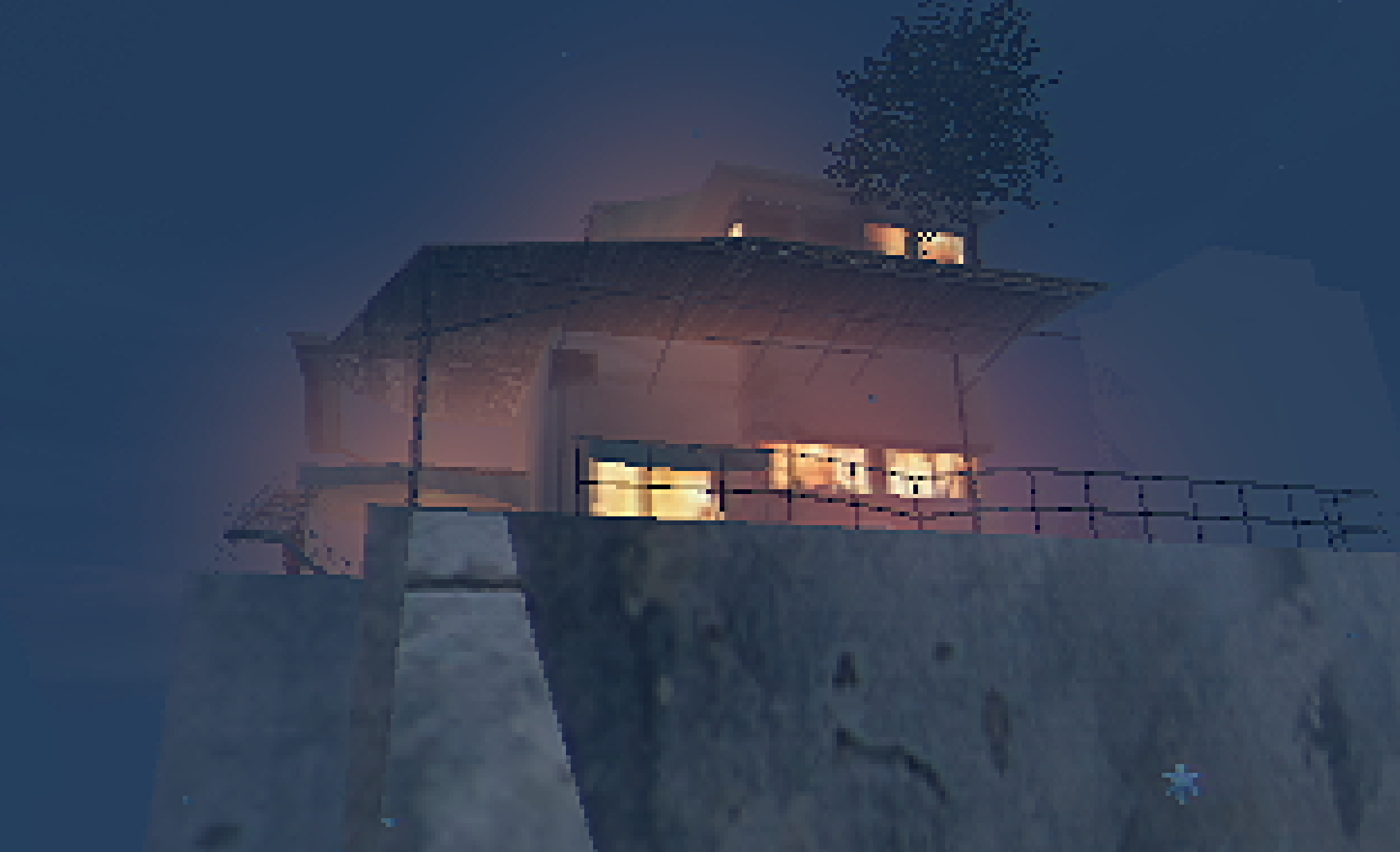
What an atmosphere! You did not have to go that hard with the mood but damn. Absolutely bizarre game but in the best way. This is an absolute success.
Thank you so much! I played your game as well a few days ago and had a fantastic time
Amazing job! I particularly loved the cooking mode, nothing beats cooking up some fresh food. I got hungry just by playing the game. Great work!
Amazing game, very atmospheric, loved it! (check out our game, which is not as good, but we tried X<)
Thank you! And will do later today 👌🏼
Incredibly charming and unique game. It is very difficult, yet it feels somehow warranted due to its innate design. Can't for the life of me finish this game completely, but definitely a recommend it.
thank you my friend! Appreciate the feedback. Working on things that will hopefully make the game more accessible at the moment
Some really strange vibes on this, and the instrumentation in the music is cool and unique.
thank you!
I was not expecting an intro. That was really well put together. I'm not very good at it, but it was still very fun!